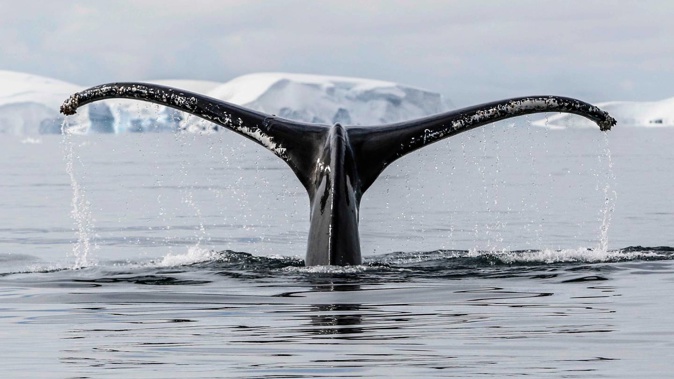
Scientists have sounded alarm over “cascades” of recent extreme events in Antarctica – raising an urgent need to understand how climate change is affecting the frozen continent.
In a first-of-its-kind review, a team led by the UK’s University of Exeter have analysed the profound impact of extreme events on Antarctica’s biodiversity, weather, ocean, glaciers and ice shelves.
It comes as scientists have been observing an astonishing record-low extent of sea ice in the Southern Ocean: a “one-in-7.5 million-year” event for which global climate change has been fingered as a prime culprit.
Other examples highlighted in the study, just published in the journal Frontiers in Environmental Science, include the world’s largest recorded heatwave, when temperatures in East Antarctica reached 38.5C above the mean last year.
It further pointed to retreating ice shelves, major iceberg calving events, the recent arrival of non-native plants, and the breeding failure of a colony of Adelie penguins, following rain that later froze.
Earlier this year, scientists suggested the gradual melting of Antarctica’s ice sheets – storing an equivalent 58m of global sea level rise – could be putting surrounding deep currents on a path to collapse, with dramatic implications for our planet’s ocean and climate.
Antarctica is warming five times faster than the rest of the world. Photo / Eloise Barker
The new review also noted how the impacts of extreme events could be linked in “cascades”.
For instance, an atmospheric river in March last year led to record temperatures in central East Antarctica – and also surface warming of land ice, the break-up of sea ice, and the collapse of the Conger Ice Shelf, a floating platform the size of Rome.
“Physical and biological impacts can also interact, such as warming and the loss of land ice combining to lead to greater probability of alien species establishment,” they said.
“We cannot rule out future cascades where extreme events may have wide-ranging linked impacts in multiple realms, some of them potentially hard to predict.”
While the events to date had occurred against a background of climate change, attributing them to global heating directly wasn’t straight forward.
In New Zealand, for instance, scientists have only recently begun teasing out the human influence in extreme events, such as 2021 deluges that caused destructive floods in Westport and Canterbury.
“Whereas it is an open scientific question as to the level some of these events can be attributed to fossil-fuel burning,” the new paper’s authors noted, “in the vast majority of cases it is virtually certain that continued greenhouse gas emissions will lead to increases in the size and frequency of events, even if the causes to date cannot be attributed to it.”
Given this, they saw it crucial that policy action was taken to protect and preserve Antarctica – and that scientists urgently work together to assess the consequences of what could come in future.
“Reducing greenhouse gas emissions to net zero is our best hope of preserving Antarctica, and this must matter to every country — and individual — on the planet.”
A similar cry was made just a few weeks ago, when more than 60 of the world’s leading polar scientists called for urgent action in view of rapid changes at both ends of the planet.
One of them, Victoria University’s Professor Tim Naish, said the latest paper was a timely reminder of Antarctica’s vulnerability to climate change, at a time global warming was approaching the symbolic 1.5C threshold.
/cloudfront-ap-southeast-2.images.arcpublishing.com/nzme/LKLO23ZW2ANMR4W33DMPW6AWAU.jpg)
Victoria University geologist Professor Tim Naish is one of New Zealand's leading Antarctic researchers. Photo / Supplied
“Numerical climate and ice sheet models and evidence from past climate records shows that the West Antarctic Ice Sheet may irreversibly melt if warming is sustained above 1.5C,” he said.
“Above 2C of warming, parts of the East Antarctic Ice Sheet will also melt, committing the planet to as much as 20m of global sea-level rise over coming centuries.”
Changes unfolding in Antarctica and the Southern Ocean also had troubling and specific down-stream impacts for New Zealand, as our climate is strongly influenced by heat and moisture carried by the ocean.
“The Southern Ocean has taken up most of the extra heat from human activities and the tropics are pushing southward,” Niwa Antarctic oceanographer Dr Natalie Robinson said.
“This means that, across the latitudes that New Zealand occupies, there are stronger gradients, more energy, and more propensity for the atmosphere to take up moisture from the ocean,” she said.
“New Zealand is therefore in the firing line of a more energetic ocean-atmosphere system, capable of delivering more intense storm and rain events, with increasing frequency.”
Jamie Morton is a specialist in science and environmental reporting. He joined the Herald in 2011 and writes about everything from conservation and climate change to natural hazards and new technology.
Take your Radio, Podcasts and Music with you

/cloudfront-ap-southeast-2.images.arcpublishing.com/nzme/ENVL2CFHQVAKXEQX2JDFORRCSQ.JPG)








